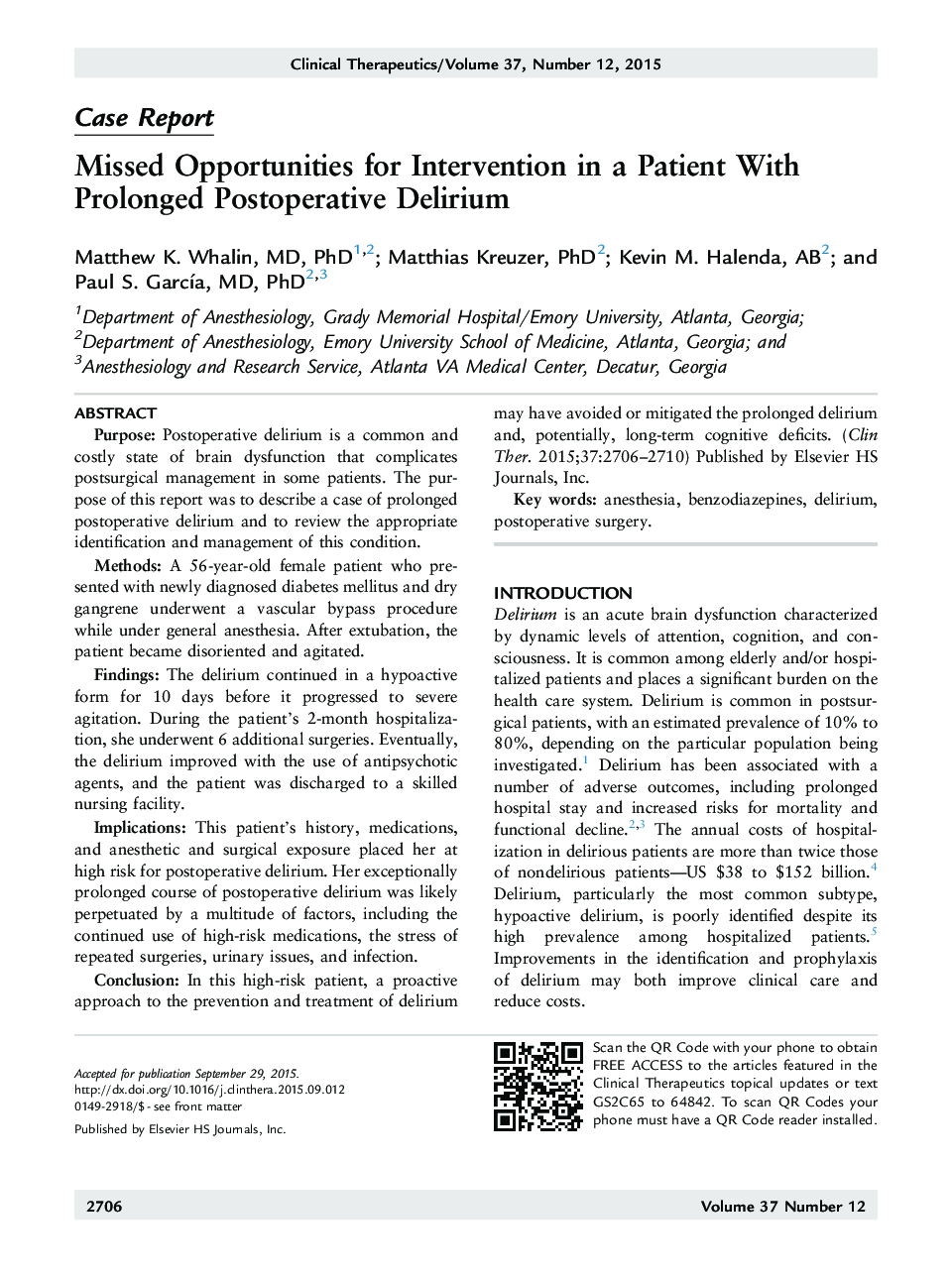| Article ID | Journal | Published Year | Pages | File Type |
|---|---|---|---|---|
| 5824697 | Clinical Therapeutics | 2015 | 5 Pages |
PurposePostoperative delirium is a common and costly state of brain dysfunction that complicates postsurgical management in some patients. The purpose of this report was to describe a case of prolonged postoperative delirium and to review the appropriate identification and management of this condition.MethodsA 56-year-old female patient who presented with newly diagnosed diabetes mellitus and dry gangrene underwent a vascular bypass procedure while under general anesthesia. After extubation, the patient became disoriented and agitated.FindingsThe delirium continued in a hypoactive form for 10 days before it progressed to severe agitation. During the patientʼs 2-month hospitalization, she underwent 6 additional surgeries. Eventually, the delirium improved with the use of antipsychotic agents, and the patient was discharged to a skilled nursing facility.ImplicationsThis patientʼs history, medications, and anesthetic and surgical exposure placed her at high risk for postoperative delirium. Her exceptionally prolonged course of postoperative delirium was likely perpetuated by a multitude of factors, including the continued use of high-risk medications, the stress of repeated surgeries, urinary issues, and infection.ConclusionIn this high-risk patient, a proactive approach to the prevention and treatment of delirium may have avoided or mitigated the prolonged delirium and, potentially, long-term cognitive deficits.
